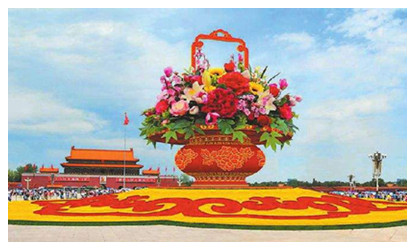Skype: neodalle-travel
Tel: +86 135 7447 2266
E-mail: sales@visitaroundchina.com

 Though China is very open to foreign visitors, you should be aware of political and cultural sensitivities in conversation with Chinese people.
Though China is very open to foreign visitors, you should be aware of political and cultural sensitivities in conversation with Chinese people.Crime
Foreigners can be targeted for passports, laptops, mobile phones, purses and handbags. Major tourist sites and areas frequented by foreigners attract thieves and pickpockets. You should take extra care at major tourist sites, on shopping streets, at street markets, Beijing International Airport, major international events and conferences and popular bar areas after dark. The number of thefts can increase in the weeks leading up to Chinese New Year. If your passport is lost or stolen, report it to the nearest police station or Public Security Bureau, who will issue a ‘confirmation of loss’ report. Don’t resist any attempted robbery.
Serious crime against foreigners is relatively rare, but incidents do occur. There have been incidents of sexual assault and robbery of foreigners, particularly when travelling alone in a taxi late at night in major cities. Where possible, take an ‘official’ taxi, make sure someone knows where you are and try to take a note of the taxi’s number.
There are occasional incidents with taxi and pedicab drivers who insist the passenger misunderstood the fare. Avoid travelling in unmarked or unmetered ‘taxis’ and insist on paying only the meter fare. Ask the driver for a receipt (fapiao), on which the taxi number should be printed. You can take this to the police to lodge a complaint.
Counterfeit bank notes (especially RMB100) are increasingly common. They are generally crumpled to avoid detection but you may also receive them from ATMs. Banks won’t replace these. Unscrupulous traders may try to switch your genuine bank notes for counterfeits. Check carefully before accepting notes. It is quite normal to do so.
Don’t trek alone in isolated areas, including those that follow parts of the Great Wall. If you do, always leave your itinerary, mobile number and expected time of return at your hotel or with a third party.
The areas bordering on Siberia, Pakistan, Kazakhstan, Vietnam, Laos and Burma are poorly policed. In Yunnan Province, drug smuggling and other crimes are increasing. There is a risk of attack from armed criminals in remote areas.
Beware of scams in popular tourist areas. A common example is the ‘tea tasting’ scam or ‘massage’ scam. These usually involve a foreign national being invited to visit a bar, shop or cafe – for example to practice English or meet a girl – or invited for a massage, but results in demands for an exorbitant fee, often payable by credit card. This can result in threats or actual violence, and credit card fraud.
You should exercise caution when hiring a rental bicycle using a QR code as there have been cases of the legitimate barcode being replaced with another, false, code which redirects money to a different account. Check QR code stickers carefully.
Check fire precautions including access to fire exits. Make sure your accommodation has a working fire alarm and regularly check that the fire exits aren’t blocked.
There have been incidences of carbon monoxide poisoning due to incorrectly installed gas equipment. If you live in China, make sure your home has a working carbon monoxide alarm. The ‘Be Alarmed’ campaign gives practical advice on how to stay safe, and lists the symptoms to look out for.
Commercial disputes in China are rarely handled through the civil law courts. Incidents of British nationals being detained against their will to extort money or intimidate them for other gains have increased. It is rare for violence to be used, but the threat of violence is a recurring theme. You should report any threats of violence to the Chinese police.
Before entering into a contract in China you should take legal advice, both in your country and in China. If you are involved in or connected to a business and/or civil dispute, the Chinese authorities may prohibit you from leaving China until the matter is resolved. This is known as a travel ban. Contract fraud is treated as a crime in China and the defendant may also be placed in custody until the dispute is resolved.
You will need a permit to travel to the Tibet Autonomous Region. Applications for Tibet Entry Permits can only be made through specialised travel agents based in China and travel can only be undertaken through organised tours. The Chinese authorities sometimes suspend issuing Tibet Entry Permits to foreign nationals, and may also restrict travel to Tibetan Autonomous Prefectures in neighbouring Provinces by those who have already obtained a permit. These restrictions can happen at any time, but in particular during sensitive periods or major religious festivals - especially around February and March, coinciding with the Tibetan new year festival and the anniversary of certain uprisings in Tibet. Travellers to all Tibet areas should check with tour operators or travel agents and monitor this travel advice and other media for information.
If you travel to Tibet you should be aware that ongoing political and ethnic tensions can lead to unrest and violent protest. While foreigners aren’t normally targeted, you should be alert to the possibility of being caught up in any unexpected demonstrations or outbreaks of violence. Security measures are tight around any large public gathering and unauthorised gatherings may be dispersed by force. There continue to be a number of self-immolations (most recently on 8 December 2016) including in Tibetan areas outside of the Tibetan Autonomous Region itself.
The Chinese authorities tend to react quickly to these incidents and will increase the security presence in the area. There are reports that housing around the Larung Gar Buddhist Academy in Larung valley, Sichuan province, is being demolished by the local authorities so this area should be avoided. Avoid becoming involved in any protests or calls for Tibetan independence. Don’t film or photograph any such activities.
Local authorities will react negatively if you are found carrying letters or packages from Tibetan nationals to be posted in other countries.
Photography in Buddhist monasteries requires permission. You will need to pay a fee, which is normally negotiated in advance.
The security situation in Xinjiang remains fragile, and conditions locally can deteriorate rapidly at short notice. There have been several instances of violent unrest in Xinjiang. In September 2015, at least 16 people were reported killed in attack on police and civilians at a coal mine in Aksu Prefecture, and in November 2015, 28 people were reportedly killed in a security operation. There have been allegations of the use of lethal force to disperse protests.
Whilst outbreaks of ethnic violence remain sporadic, and foreigners are not normally targeted, you should be alert to the possibility of being caught up in any unexpected demonstrations or outbreaks of violence. The Chinese authorities tend to react quickly to these incidents. They will increase the security presence in the area and their response may be heavy-handed. The Chinese authorities may restrict travel to some areas of Xinjiang, particularly during religious festivals and after violent attacks. You should remain vigilant, keep up to date with local security advice and media reports and take extra care when travelling in Xinjiang. Avoid becoming involved in any protests and avoid large crowds. Don’t film or photograph any such activities or anything of a military nature.
Public transport is popular, inexpensive and widely available, though it can become extremely crowded, especially at holiday/festival times like the Chinese New Year. At busy times, trains and flights are often fully booked weeks in advance.
Visitors and tourists are not allowed to drive in China. Only foreign nationals with a valid residence permit may drive in China. You will have to pass a driving test and get a Chinese driving licence. An International Driving Permitis not sufficient. You must also have valid insurance.
There are harsh penalties for driving under the influence of alcohol, even at very low levels.
The poor quality of roads, high volume of traffic and generally low driving standards lead to many accidents. If you are involved in a serious traffic accident, call the police. Don’t move your vehicle until the police arrive but make sure you and your passengers are in a safe place. If there are no injuries and damage is minimal, the parties involved often come to an agreement on the spot. In cases where there are injuries, you may be held liable for medical costs. You will also be held liable if you run over a pedestrian.
There are areas of disputed territory between China and other countries in the East China Sea. Mariners should be vigilant and avoid disputed areas. There have been incidents of piracy and armed robbery against ships in the East China Sea. The Regional Co-operation Agreement on Combating Piracy and Armed Robbery against Ships in Asia Information Sharing Centre (ReCAAP ISC) recorded 40 incidents in 2014 and 10 in 2015. See the ReCAAP ISC’s website for updates on incidents and trends.
Only cash payments are accepted for tickets, including on high speed services. You will need to show your passport to buy a ticket and may need to show it again before boarding.
Trans-Mongolian express trains (Beijing-Moscow via Ulaanbaatar) are noted for smuggling. Search your compartment and secure the cabin door before departure. Petty theft from overnight trains is also common.
 Ask Questions ?
Ask Questions ?